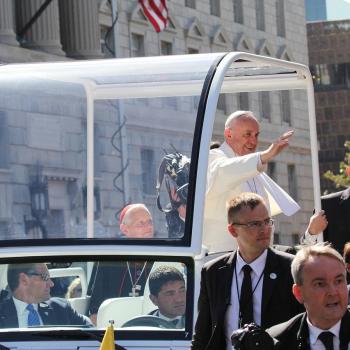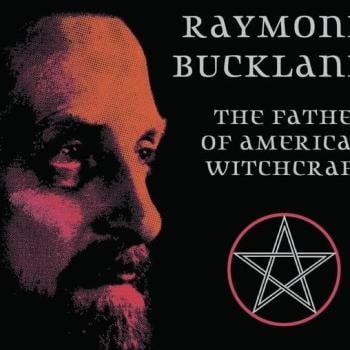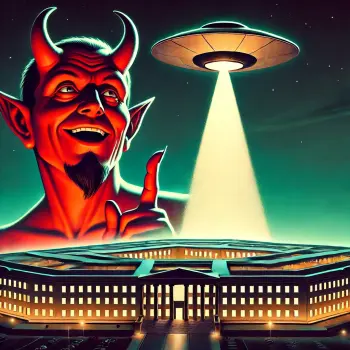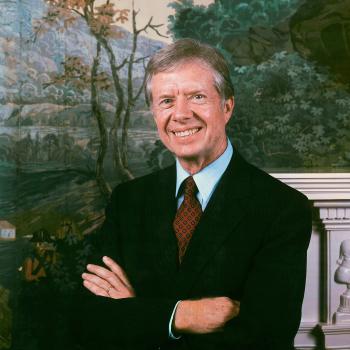Writing on the occasion of Martin Luther King Day in 2002, Georgia Congressman John Lewis, a close disciple of King’s in the civil rights movement, reflected on his mentor’s appreciation of the unique symmetry of the black and Jewish experiences:
He knew that both peoples were uprooted involuntarily from their homelands. He knew that both peoples were shaped by the tragic experience of slavery. He knew that both peoples were forced to live in ghettos, victims of segregation. He knew that both peoples were subject to laws passed with the particular intent of oppressing them simply because they were Jewish or black. He knew that both peoples have been subjected to oppression and genocide on a level unprecedented in history.
On April 3, 1968, King offered his most famous -- and haunting -- invocation of the Exodus in a speech on behalf of striking sanitation workers in Memphis, Tennessee. “I just want to do God’s will. And He’s allowed me to go up to the mountain. And I’ve looked over. And I’ve seen the Promised Land. I may not get there with you. But I want you to know tonight, that we, as a people will get to the Promised Land.” The next day, King was assassinated. He was planning to spend the upcoming Passover holiday with Heschel and his family.
Pastor Glenn Plummer visited Israel for the first time in 1996, traveling by bus from Ben-Gurion International Airport to Jerusalem. With his wife, Karen, sitting next to him, Plummer pressed his face against the window, drinking in the landscape. The road to Jerusalem evoked rich biblical associations for Plummer, a prominent religious and business leader from Detroit who owns three television networks that broadcast religious programming. Plummer is also the former head of the influential National Religious Broadcasters. “There is a passage that David wrote that says, ‘I lift my eyes unto the hills, from whence cometh my help, my help comes from the Lord,’” says Plummer, a virtuoso conversationalist who gives the impression that he could talk a hole into a cement wall.
He had long known that verse of scripture, but until that moment on the bus it had never occurred to him that David’s eyes gazed upon this same land.
“And here I am riding on this bus, looking out, and some of these hills, somewhere down the line, David had to have seen. It just brought tears to my eyes and it had an overwhelming impact on me . . . The experience was exhilarating.”
But it was during a 2004 trip to Israel that Plummer experienced what he calls “a real explosion in my heart for the Jewish people.” For the first time, Plummer learned about the existence of the Ethiopian Jews. “I just couldn’t believe it. Suddenly I saw these Ethiopian Jews all over the place. These are black Jews. I was just stunned. Why did I not know this? I did not know about Operation Solomon. I did not know about Operation Moses. I was just floored.
“For the next seven months or so, something really began to stir in me about Israel and black America. I began to notice many parallels. I knew some of this stuff, but it only began to focus in my mind after that trip. Ultimately I came to the conclusion that black America is and should be a very strong international ally of Israel.”
Plummer’s face is narrow and youthful with a meticulously groomed goatee flecked with wisps of white. Vibrantly dark eyes, undiminished behind the wire frames of his glasses, suggest a restless vitality.
“It is absolutely fundamental,” he says. “Black preachers identify with the journey of Israel, and black people in general relate because there are so many parallels.”
Plummer sounds a bit like Ralph Ellison, who once quipped, “All of us old-fashioned Negroes are Jews.” And Ellison had a point. Even today it is very common to find black churches named for biblically significant Jewish sites. For Plummer, this fact is of critical significance. “If you ask a normal black, ‘Where is Sierra Leone?’ They would probably not even know it is a country, forget that it is in Africa. Most black Americans have no idea about that. But when you ask us, ‘Have you ever heard of Mt. Zion? Have you ever heard of Mt. Carmel? Mt. Hermon?’ These are normal black church names. Those are names that are common in the black community because they are the names of black churches. And when I say common, I mean you can go to any black community and you will find these Jewish names on the churches.”
Exodus remains a touchstone of black identity that spans the religious, political, and social, even secular, spectrum. “Just as the epic story of the journey from Egypt to Canaan became deeply ingrained in Jewish life through the celebration of Passover,” says Eric Sundquist, professor of literature at the University of California at Los Angeles and author of Strangers in the Land: Blacks, Jews, Post-Holocaust America, “so the black Exodus, through continual elaboration and reinvention, became an enduring symbol of African Americans’ consciousness of being a nation, but one in exile from its homeland and longing for freedom.”




